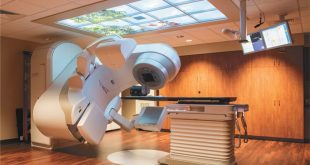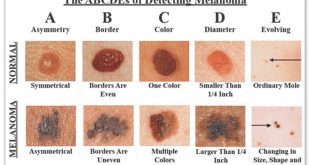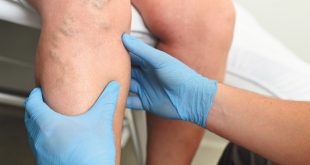By Ravi Chandra, MD, FRCS – The Vein Center of North Florida
Venous insufficiency is a condition that affects the veins in the legs, causing them to become weak or damaged and unable to properly circulate blood back to the heart. This condition can lead to a range of symptoms and complications, including swelling, pain, skin changes, and even ulceration. However, with early diagnosis and treatment, many people with venous insufficiency can find relief from their symptoms and prevent further complications.
Warning Signs and Symptoms of Venous Insufficiency
One of the most common warning signs of venous insufficiency is the appearance of varicose veins – twisted, bulging veins that may be visible on the surface of the skin. Other symptoms may include:
. Swelling in the legs, ankles, or feet
. Aching or heaviness in the legs
. Itching or tingling sensations in the legs
. Skin changes, such as discoloration, thickening, or ulceration
If you are experiencing any of these symptoms, it is important to seek medical attention as soon as possible. Your doctor can perform a physical exam and other tests to determine if you have venous insufficiency and recommend appropriate treatment.
Risk Factors for Venous Insufficiency
Certain factors can increase your risk of developing venous insufficiency. These include:
. Age: As you get older, the valves in your veins may become weaker and less effective at circulating blood.
. Family history: If other members of your family have had venous insufficiency or varicose veins, you may be more likely to develop them as well.
. Obesity: Carrying excess weight can put added pressure on your veins and increase your risk of developing venous insufficiency.
. Pregnancy: Hormonal changes and the added weight of a growing fetus can also put pressure on your veins and lead to venous insufficiency.
. Sedentary lifestyle: Sitting or standing for long periods of time can also increase your risk of developing venous insufficiency.
Treatment Options for Venous Insufficiency
There are several treatment options available for venous insufficiency, depending on the severity of your symptoms and the underlying cause of your condition. Two common procedures used to treat venous insufficiency are Medtronic’s Closure Fast and Boston Scientific’s Varithena.
Closure Fast is a minimally invasive procedure that uses radiofrequency energy to close diseased veins. During the procedure, a small catheter is inserted into the affected vein, and radiofrequency energy is used to heat and collapse the vein. The procedure typically takes about an hour to complete and requires only local anesthesia. Patients can usually return to normal activities within a few days.
Varithena is a foam sclerosant that is injected into the affected vein to collapse and seal it. This procedure is also minimally invasive and typically takes about an hour to complete. Patients may experience some discomfort or swelling after the procedure, but can usually return to normal activities within a few days.
In addition to these procedures, other treatment options for venous insufficiency may include:
Compression stockings: These special stockings apply pressure to the legs and help improve blood flow.
Lifestyle changes: Maintaining a healthy weight, exercising regularly, and avoiding prolonged sitting or standing can help prevent venous insufficiency from getting worse.
Procedures we offer: Radiofrequency Ablations, Chemical Foam Ablations, Phlebectomy, and Sclerotherapy procedures.
If you are experiencing symptoms of venous insufficiency, it is important to seek medical attention as soon as possible. With early diagnosis and appropriate treatment, you can find relief from your symptoms and prevent further complications. Talk to your doctor about the treatment options that may be right for you, including Medtronic’s Closure Fast and Boston Scientific’s Varithena.
Ocala’s leading vascular surgeon, Dr. Ravi Chandra, is the only local surgeon certified by the American Board of Surgery, the American Board of Phlebology, and the American Board of Vascular Medicine as a diplomat in Endo-Vascular medicine. Dr. Ravi Chandra leads a team of medical professionals who take a personalized approach with each patient. The Vein Center of North Florida’s staff takes their time to listen to patient concerns and develop a customized treatment plan to address each patient’s medical concerns. Our goal is to perform the safest and least invasive procedure possible and get you back to living life at its fullest!
Patricia D. Hurst, ARNP-BC
Patricia Hurst is a Board Certified Nurse Practitioner earning her Master’s Degree at the University of South Alabama. She has worked with Dr. Chandra and the SSO team for more than 20 years. She sees patients in the office, hospitals and has extensive training assisting in the operating room. She earned a certificate of first assisting from the National Institute of First Assisting (NIFA) and became a Certified Perioperative Nurse (CNOR) as a commitment to providing quality care for her patients during their surgical experience. Patty was raised in Ocala and takes great pride in serving her local community. She enjoys spending time with her family, antique shopping, and refurbishing furniture.
The Vein Center of North Florida
1920 SW 20th Place, Suite #201
Ocala, Florida 34474
352-237-1820
www.veincenternorthflorida.com
 Central Florida Health and Wellness Magazine Health and Wellness Articles of the Villages
Central Florida Health and Wellness Magazine Health and Wellness Articles of the Villages



